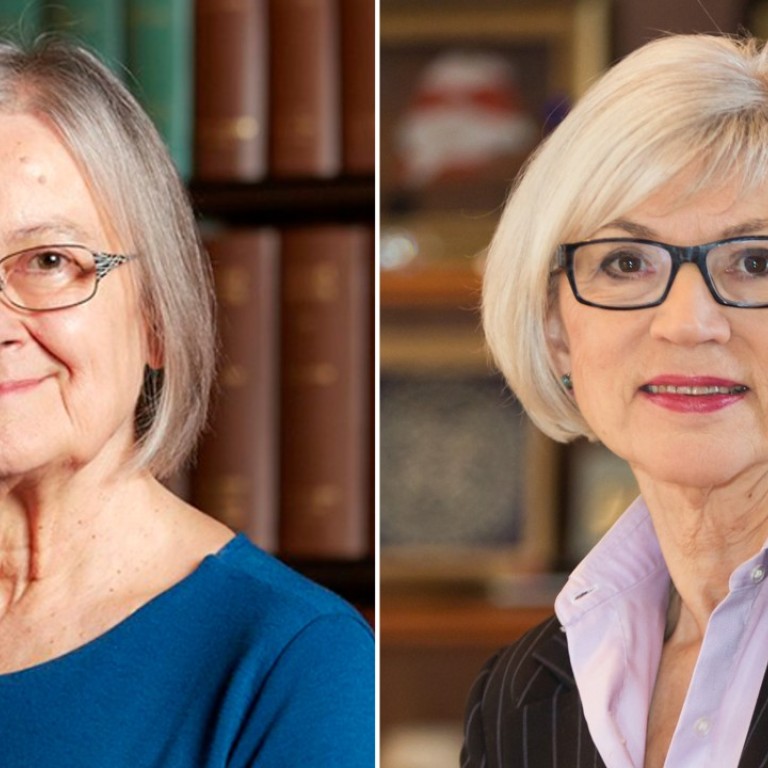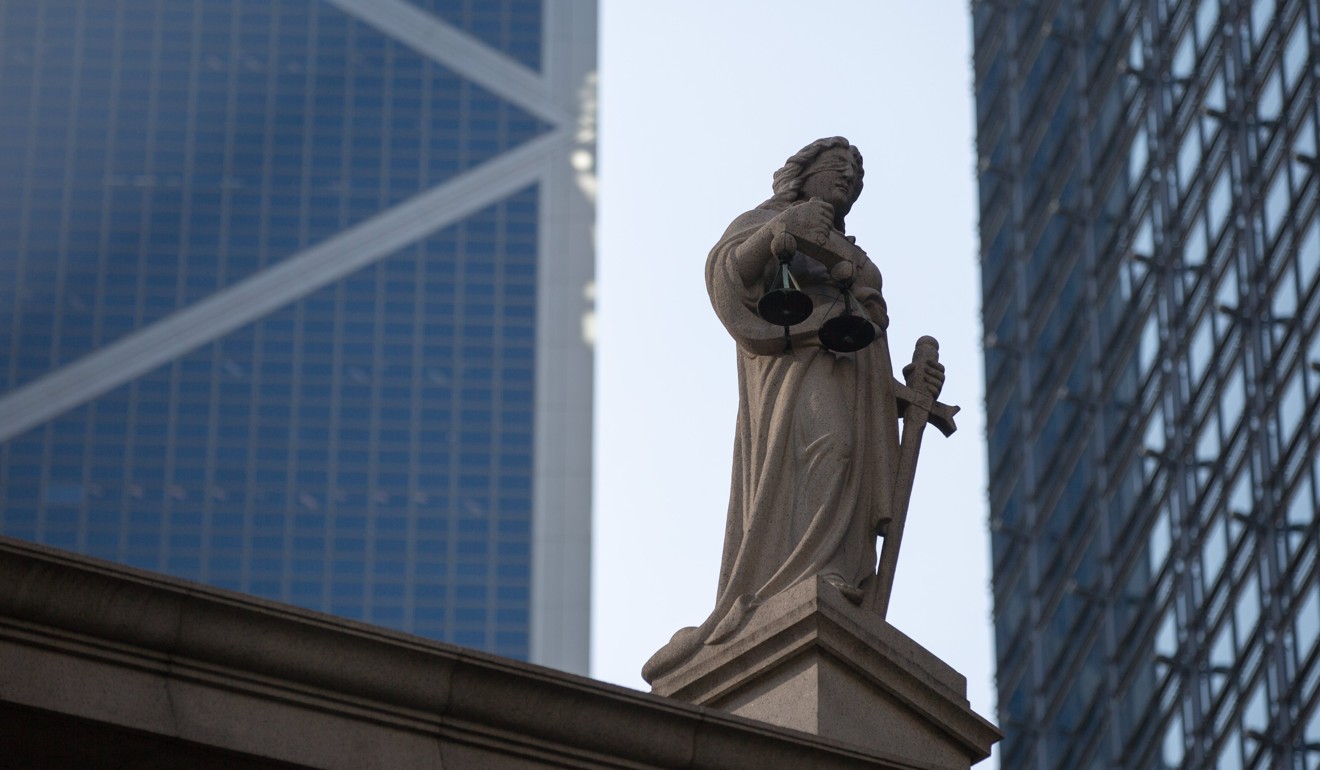
Baroness Hale and Beverly McLachlin become first female judges to join Hong Kong’s Court of Final Appeal despite ‘national interest’ concerns
Pair will serve three-year terms despite concerns over same-sex beliefs and questions of where their loyalties will lie in matters of ‘national interest’
Two leading foreign judges who are vocal supporters of same-sex rights were appointed to Hong Kong’s highest court on Wednesday – with the resounding backing of the city’s lawmakers.
Sixty out of 62 lawmakers present at the Legislative Council said yes to Britain’s top judge Brenda Hale, and Canada’s former top judge Beverley McLachlin, becoming the first women to join the Court of Final Appeal (CFA).
The pair will begin their three-year terms in July, despite politicians continuing to question if foreign judges would uphold the national interest in politically sensitive cases.

In his opening remarks Chief Secretary Matthew Cheung Kin-chung praised Hale and McLachlin as “judges of eminent standing and reputation”, and said they would be invaluable additions to the list of non-permanent judges from other common-law jurisdictions.
Not everyone was convinced.
“As a judge of Hong Kong’s Court of Final Appeal, [Hale] is at the same time the president of Britain’s Supreme Court … If there is a conflict of national interest between the two countries, on which side would she stand?” Pro-Beijing lawmaker Priscilla Leung Mei-fun, who teaches law at City University, asked.
She urged the city’s judiciary to consider “national interest” when handing certain court cases to foreign judges.
Pro-Beijing lawmakers voice concerns over foreign judges’ support for gay rights
Starry Lee Wai-king, chairwoman of the Democratic Alliance for the Betterment and Progress of Hong Kong, raised similar concerns about the mechanism for appointing judges.
“If there are cases related to Hong Kong independence put forth to the court, some citizens may be worried that the verdict would be affected by judges who are known for embracing a federal system,” she said.
Although Legco has never rejected the appointment of either local or foreign judges, who are nominated by the Judicial Officers Recommendation Commission – an independent committee comprising the city’s chief justice, the justice minister and representatives from the legal sector – and appointed by the chief executive, lawmakers bore responsibility to raise criticisms, she added.
On the pair’s support for LGBT rights, Lee’s party colleague Holden Chow Ho-ding said “people who uphold traditional family values” were concerned.
“The two newly appointed non-permanent judges are entitled to hear any cases before them, but save and except that when there is any landmark court case concerning same-sex marriage, I think they might consider recusing themselves,” he said.
Macau proposal to ban foreign judges on some cases would ‘dent confidence’ in Hong Kong, says legal expert
The pro-democracy camp has strongly criticised their rivals for politicising the issue.
Legal sector lawmaker Dennis Kwok, of the Civic Party, criticised their acts as ruining the independence of the judiciary and the well-settled principles of the Basic Law, the city’s mini-constitution.
“The long-term cost to politicising the judiciary will be much higher than any short-term political benefit that may be accrued from an underhanded political manoeuvre,” he said, adding that the appointments of the two top judges would improve diversity and inclusion at the highest court, ultimately strengthening the rule of law in the city.
Legco finally approved the appointments, which included promoting Chief Judge of the High Court Justice Andrew Cheung Kui-nung to a permanent position at the CFA, while Justice Robert Tang Kwok-ching retires to a non-permanent role.
There were 60 votes in support, with pro-Beijing lawmaker Junius Ho Kwan-yiu abstaining because of his concerns over Hale and McLachlin’s pro-gay stance.
As often, Legco president Andrew Leung Kwan-yuen did not vote.

